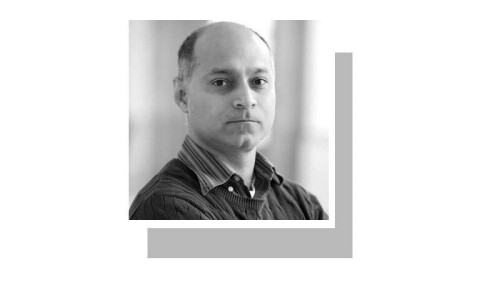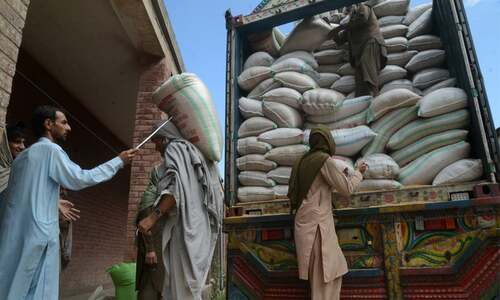ISLAMABAD: Caretaker Prime Minister Anwaarul Haq Kakar’s government increased the prices of petrol and high-speed diesel (HSD) on Thursday by Rs14.91 and Rs18.44 per litre, respectively, to beyond Rs300, a psychological barrier that has been crossed for the first time in the country’s history.
Besides, in a major policy decision, the government increased the petroleum levy on petrol by Rs5 per litre, from Rs55 to a maximum permissible limit of Rs60 per litre.
The hike in fuel rates, attributed to the rupee’s depreciation and rising global oil prices, comes just a fortnight after Rs17.50 and Rs20 per litre increase in petrol and HSD prices. The combined increase works out at Rs31.41 and Rs38.44 per litre within a span of just 15 days.
The Ministry of Finance announced the new prices late in the night following clearance from the caretaker prime minister.
Levy on petrol increased by Rs5 per litre
“Owing to the increasing trend of petroleum prices in the international market and exchange rate variations, the government has decided to revise the existing consumer prices of petroleum products,” it said.
Under the decision, the ex-depot price of HSD has been fixed at Rs311.84 per litre instead of Rs293.40, up by Rs18.44 (or 6.3pc). Most of the transport sector runs on HSD. Its price is considered highly inflationary as it is mostly used in heavy transport vehicles, trains and agricultural engines like trucks, buses, tractors, tube wells and threshers and particularly adds to the prices of vegetables and other eatables.
Likewise, the ex-depot petrol price has been fixed at Rs305.36 per litre for the next fortnight against Rs290.45 per litre, showing an increase of Rs14.91 (5.13pc). The product is mostly used in private transport, small vehicles, rickshaws and two-wheelers and directly affects budgets of the middle- and lower-middle classes.
The government did not announce any change in kerosene and light diesel oil prices.
The price of HSD in the Middle East, according to the Platts oilgram price report, increased from $113 per barrel on Aug 16 to $118.2 on Aug 30, up by about 4.6pc.
The petrol price jumped from $98.5 per barrel on Aug 16 to $117 to Aug 30, showing an almost 19pc increase. The dollar-rupee parity that stood at Rs293.6 on Aug 16 went up to Rs205, up almost 4pc.
At present, the general sales tax is zero on all petroleum products, but the government is charging Rs55 per litre petroleum development levy (PDL) on petrol and Rs50 per litre each on HSD and high-octane blending component (HOBC) and 95 RON (research octane number) petrol.
The government is also charging about Rs18-22 per litre customs duty on petrol and HSD.
Published in Dawn, September 1st, 2023















































Dear visitor, the comments section is undergoing an overhaul and will return soon.